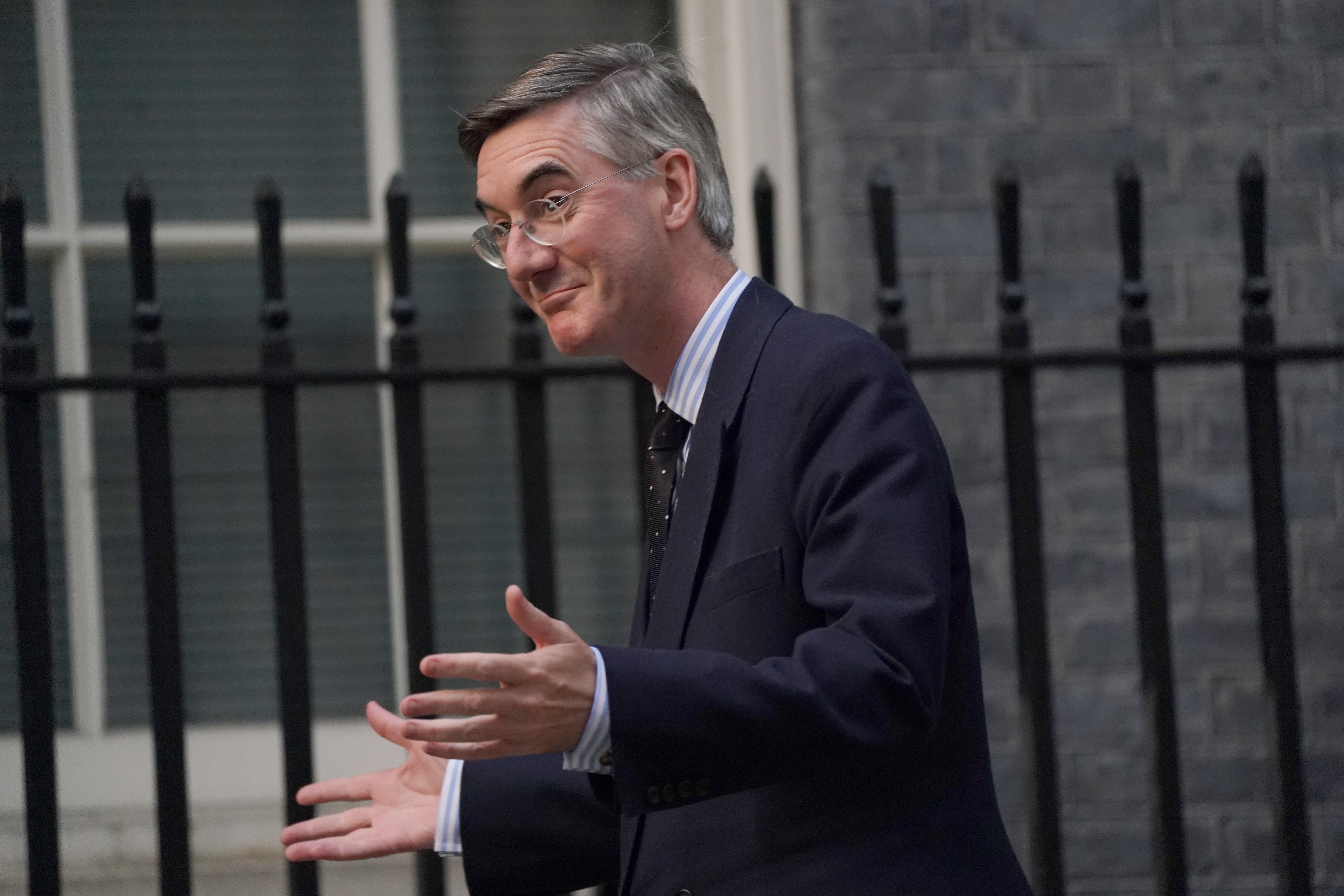A U-turn was inevitable – Jacob Rees-Mogg just elegantly blundered into a self-made trap
When the opposition parties decided to boycott the bogus reform of the standards watchdog, it was difficult to know how the government could extricate itself from the dilemma, writes Sean O’Grady


Leaving aside all the rights and wrongs of the case of Owen Paterson’s lobbying, we now know that parliament can’t run itself. Not a shock, but still a disappointment. Evidently, it can’t regulate itself and won’t discipline itself. In fact, it can’t even make its mind up. When the opposition parties decided to boycott the bogus reform of the standards watchdog, it was difficult to know how the government – for it is their mess and not, say, the speaker’s – could extricate itself from the dilemma. A U-turn was inevitable. It takes a special gift to be this venal and this incompetent.
The idea of a new committee to reform the old committee to get Paterson off the hook wasn’t thought through (not surprising, seeing as it was the brainchild of Andrea Leadsom). It could only have worked with opposition co-operation. Usually, that’s all stitched-up before a vote. Not this time. Jacob Rees-Mogg just elegantly blundered into a self-made trap.
The damage is done, anyway. As things stand, the Commons looks more than ever like a corrupt Tory club, the inhabitants “in it for themselves”, living down to the public’s worst expectations of the political classes. As Chris Bryant, chairman of the Committee on Standards and Privileges says, it’s the kind of thing that happens in Russia.
The ploy was an attempt to save Paterson from himself, a patently lost cause. It actually seems that Owen Paterson doesn’t just think he’s been given a harsh sentence, but that he is innocent. He wants to prove his innocence and recover his reputation. This really is deluded. Did he lobby on behalf of private companies? Yes. Was he paid? Yes. Did he do so by abusing his position as an MP? Yes.
Bryant called it a corrupt act. These facts are not in doubt, except maybe in the mind of Paterson, or perhaps he thinks paid lobbying is OK. He’s got process and substance mixed up, to put it charitably, and his friends in his party happily joined in the confusion.
It was especially incomprehensible behaviour because the Commons system is designed to administer light penalties for wrongdoing. In normal workplaces, people get sacked for misbehaving. Outside of serious criminal offences, MPs are unsackable. That should mean harsher punishments, short of dismissal, though the reality is much softer.
To keep up to speed with all the latest opinions and comment sign up to our free weekly Voices newsletter by clicking here
The Owen Paterson script should have run as follows. Paterson would get up in the chamber, make a personal statement, admit his misjudgements, talk about his suffering (real enough) and mildly suggest reforms to the system, but basically accept his fate. He’d then not turn up to work for a few weeks. There would be a formal petition opened up in Shropshire where people could sign up to have Paterson “recalled” and a by-election held. It is unlikely that 10 per cent of the voters would have bothered to put their names to it. Even if they did, it would be virtually impossible for Paterson to lose the seat if he stood as a Conservative, as his majority – just the majority – was 40.6 per cent of the vote. Even if he stood as an independent, he might get in. Anyway it wouldn’t happen. The whole process involving this obscure ex minister would be virtually unnoticed by the public, and would leave the citizens of Ludlow and Oswestry largely untroubled. He’d be able to resume his life.
Now, though, whatever happens, Paterson is on virtually every front page, tops the news bulletins and his name is synonymous with everything that’s gone wrong in the parliamentary system. If it ever did come to a by-election in Shropshire North, his chances of survival and being adopted as the Tory candidate are much diminished. Ruin is now more or less guaranteed, sooner or later.
One last thought. We are all now more conscious of how Boris Johnson was to be a lavish beneficiary of muzzling the standards watchdog. Kathryn Stone’s investigation into the funding of the controversial refurbishment of his Downing Street flat was to be placed on hold, indefinitely. She’s criticised the prime minister before, no doubt irking him. She was supposed not to get another chance. Now she probably will, and rightly. Johnson isn’t actually that bothered about corruption anyway. Despite his protestations, he’s not got much respect for parliament, either, and he doesn’t think the public care. He’d probably have done the same as Paterson himself, if he’d had the chance. In a way, in trying to oust the commissioner and dismantle the standards rules, he has.



Join our commenting forum
Join thought-provoking conversations, follow other Independent readers and see their replies
Comments